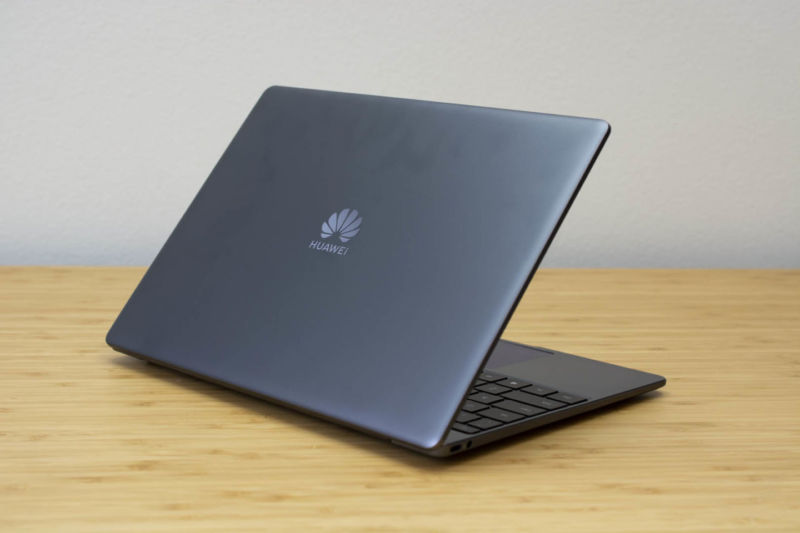

reader comments
126 with 44 posters participating
Huawei cancels MateBook laptop launch because of US export ban
View more stories
Huawei was planning to announce a new MateBook laptop this week, but an executive confirmed that the company cancelled the launch because of US sanctions against the Chinese company. It’s not clear when—or whether—the laptop will be released.
The US has banned sales of technology to Huawei, which uses Intel chips and the Windows operating system in its MateBook PCs. Huawei “planned to unveil the new Windows laptop at the CES Asia 2019 trade show in Shanghai this week” but “indefinitely postponed” the launch because of the US export ban, The Information reported yesterday.
Huawei consumer division CEO Richard Yu subsequently confirmed the cancellation to CNBC. “We cannot supply the PC,” Yu said, calling it “unfortunate,” according to CNBC.
Huawei has also “paused production at its personal-computer business because of restrictions on buying US components,” the Wall Street Journal reported. We contacted Huawei today, but a company spokesperson had no further information to share.
Huawei on “Entity List”
The US last month put Huawei on its Entity List, which prevents it from buying parts and components from US companies without US government approval. The US argues that the Chinese government could use Huawei to spy on the US, but Huawei has denied those accusations and called on the US to provide evidence.
“When asked if the laptop could be launched at a later date, Yu said it ‘depends on how long the Entity List will be there,'” CNBC wrote. “He acknowledged that, if Huawei is on the blacklist for a long time, the laptop will not be able to be launched.”
Huawei is known more for smartphones and networking equipment but has courted PC users with laptops such as the MateBook 13 and MateBook X Pro.
China’s state-run media offers different version
The Global Times—which is part of China’s state-run media—published a story disputing some of the reporting about the laptop launch. “Huawei will release a new laptop product in July, with different models and configurations compared with previous series such as the MateBook and HonorBook, a source close to the matter confirmed to the Global Times,” the news organization said.
“The new laptop will be equipped with the Windows operating system, the source said, in contrast to rumors about Microsoft halting cooperation with Huawei,” the report added. The laptop will use an ARM processor instead of Intel, the report said.
The state-run media report doesn’t mention the fact that a Huawei executive confirmed the cancellation of this week’s laptop launch. The Global Times also said its source “refuted reports that Huawei had halted laptop production due to the export control imposed by the Trump administration amid the escalating trade war.” The Global Times wrote that “industry insiders” called Huawei’s plan to release the laptop “an inspiring move.”
Intel reportedly restricted its employees from having informal conversations with Huawei, but an Intel executive also spoke out against the Trump administration’s Huawei ban on Monday.
ARM—which licenses its intellectual property to other vendors—recently told its employees that the US export ban means it can no longer work with Huawei. Microsoft recently removed Huawei laptops from its website.
In other Huawei news today, The Wall Street Journal reported that Huawei has told Verizon it should pay licensing fees for more than 200 patents that cover “core network equipment, wireline infrastructure and Internet-of-things technology.”


